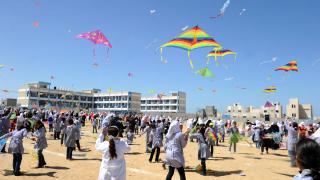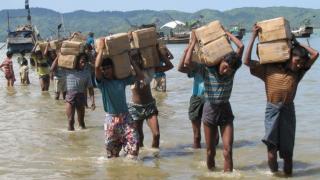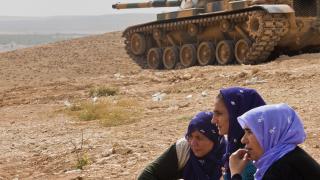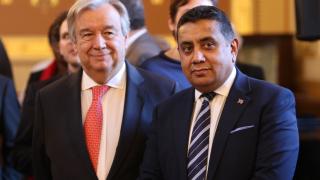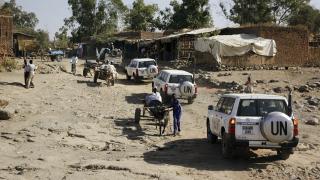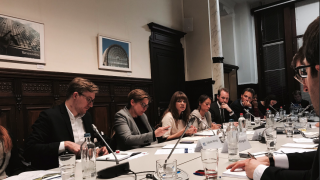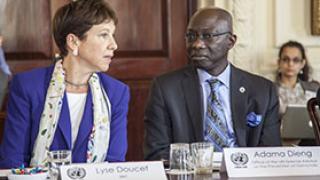
At the World Summit in 2005, member states made a commitment to protect civilians during or outside of conflict, and to prevent and respond to genocide, war crimes, ethnic cleansing and crimes against humanity. In short, the world accepted that it had a responsibility to protect all populations from these four crimes. This responsibility begins with the state but, where required, commits the international community to aiding any state struggling to fulfil its responsibility commitment, while sanctioning collective international action to protect populations when a sovereign state is unwilling to do so.
After eight years the question must be asked: has the international community developed a potent idea and norm into an effective tool for action? Building on intensive discussions in Parliament on 15 April under the auspices of the UN All-Party Parliamentary Group, this is what a UNA-UK high level roundtable on 16 April was tasked with answering. 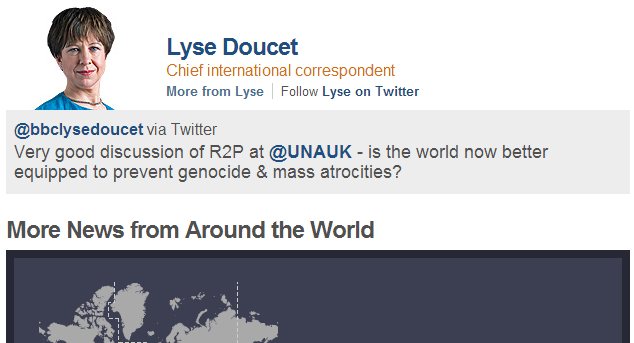
Under the Chatham House rule, a select group representing Government, civil society, the UN and academia discussed how far R2P had come, and how effective it was in the following four areas: early warning and monitoring for effective prevention; implementing prevention on the ground; intervening to protect: when and how?; and galvanising international political will for R2P.
With delegates including the UN Secretary-General’s Special Adviser for the Prevention of Genocide, Assistant Secretary-General Adama Dieng, and former UN Special Adviser for R2P, Dr Edward Luck, in addition to chairpersons such as the BBC’s Lyse Doucet and UNA-UK chair, Sir Jeremy Greenstock, the four sessions facilitated productive and open discussions which UNA-UK will seek to encapsulate in a post-roundtable recommendations paper, and also utilise to inform our policy submittal to the 2013 report of the United Nations Secretary-General on the responsibility to protect.
For further information on UNA-UK’s R2P programme, please contact Alexandra Buskie on 020 7766 3445 or at buskie@una.org.uk

